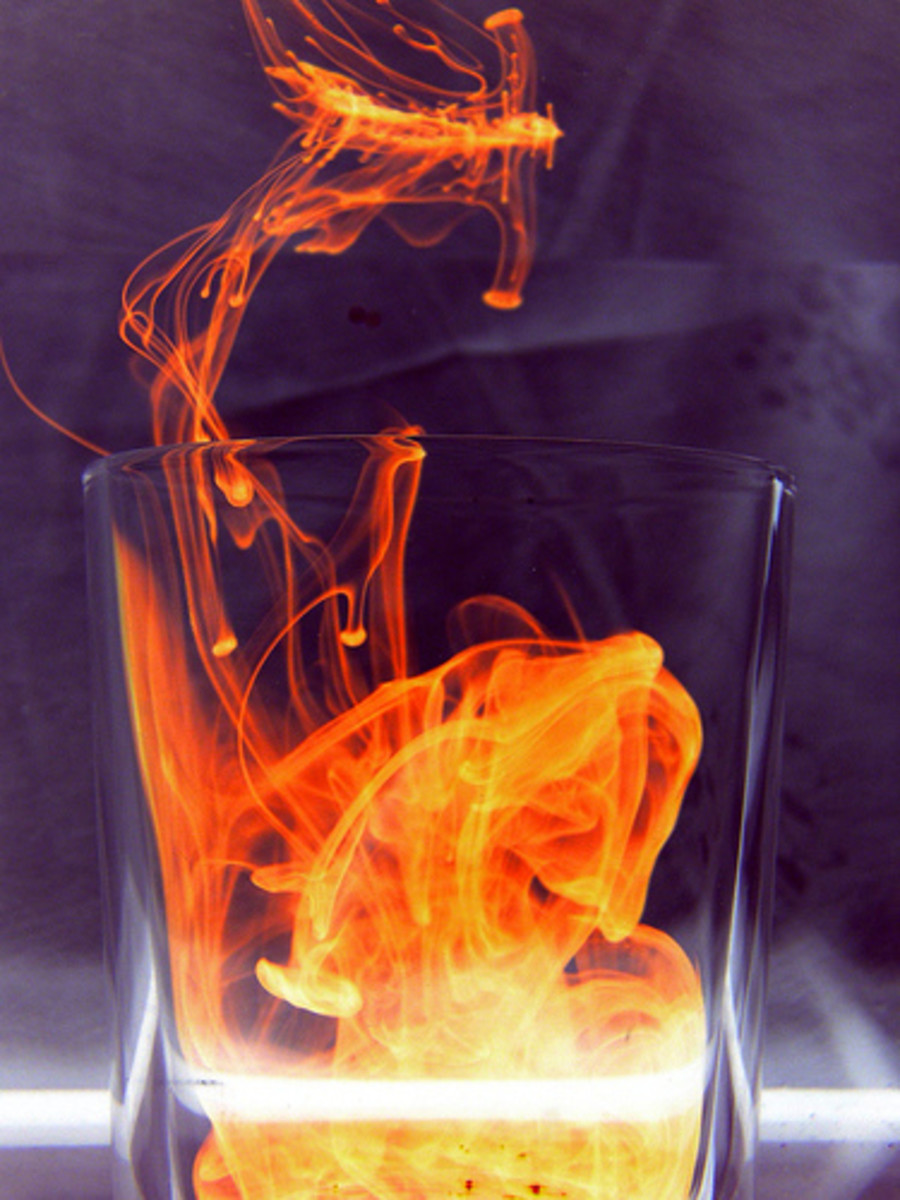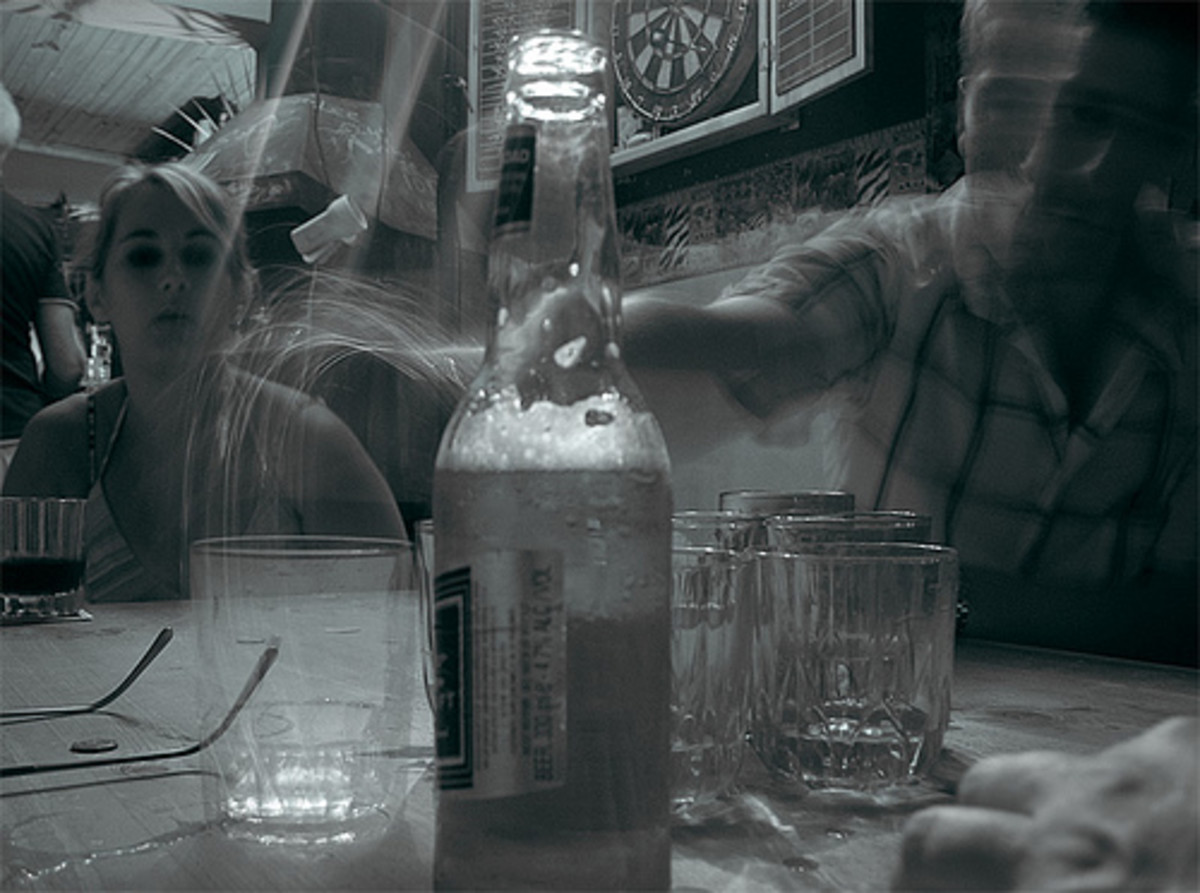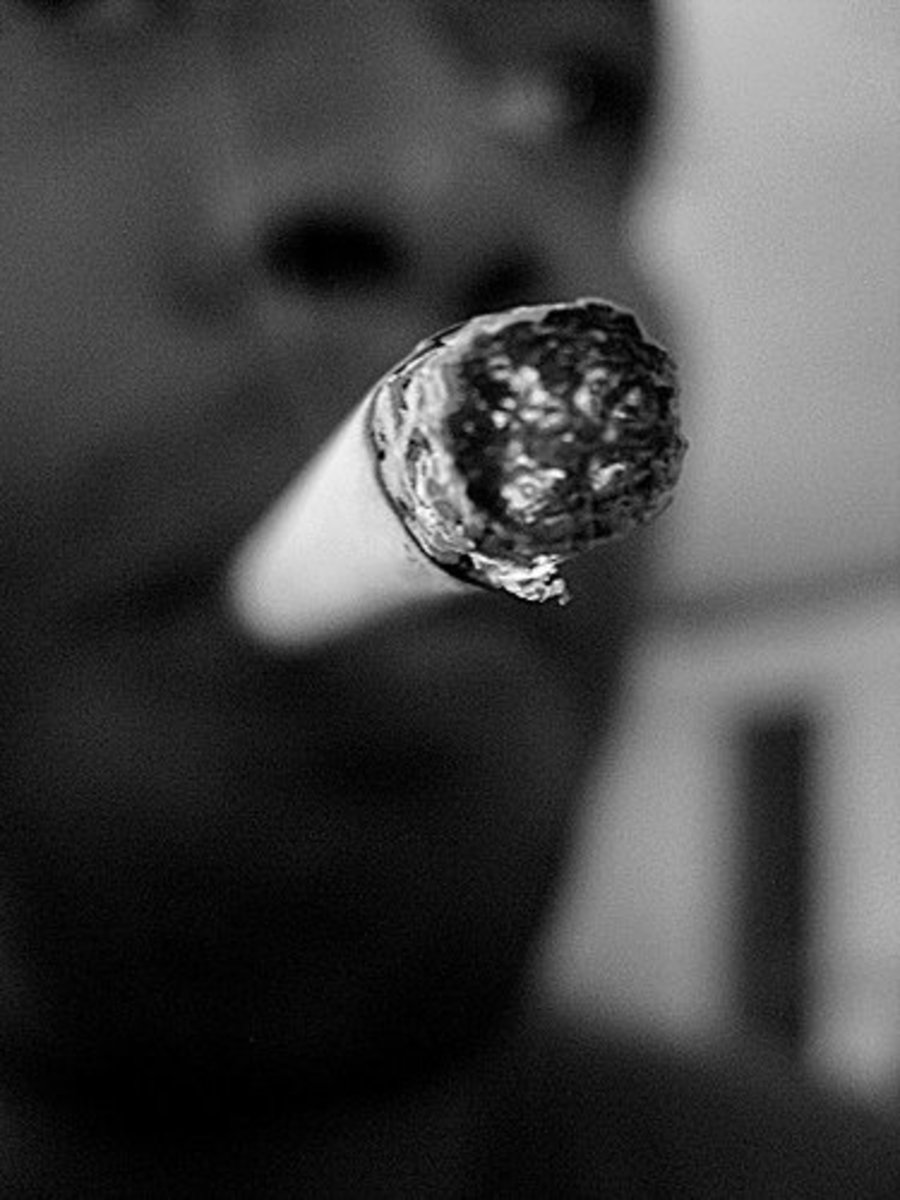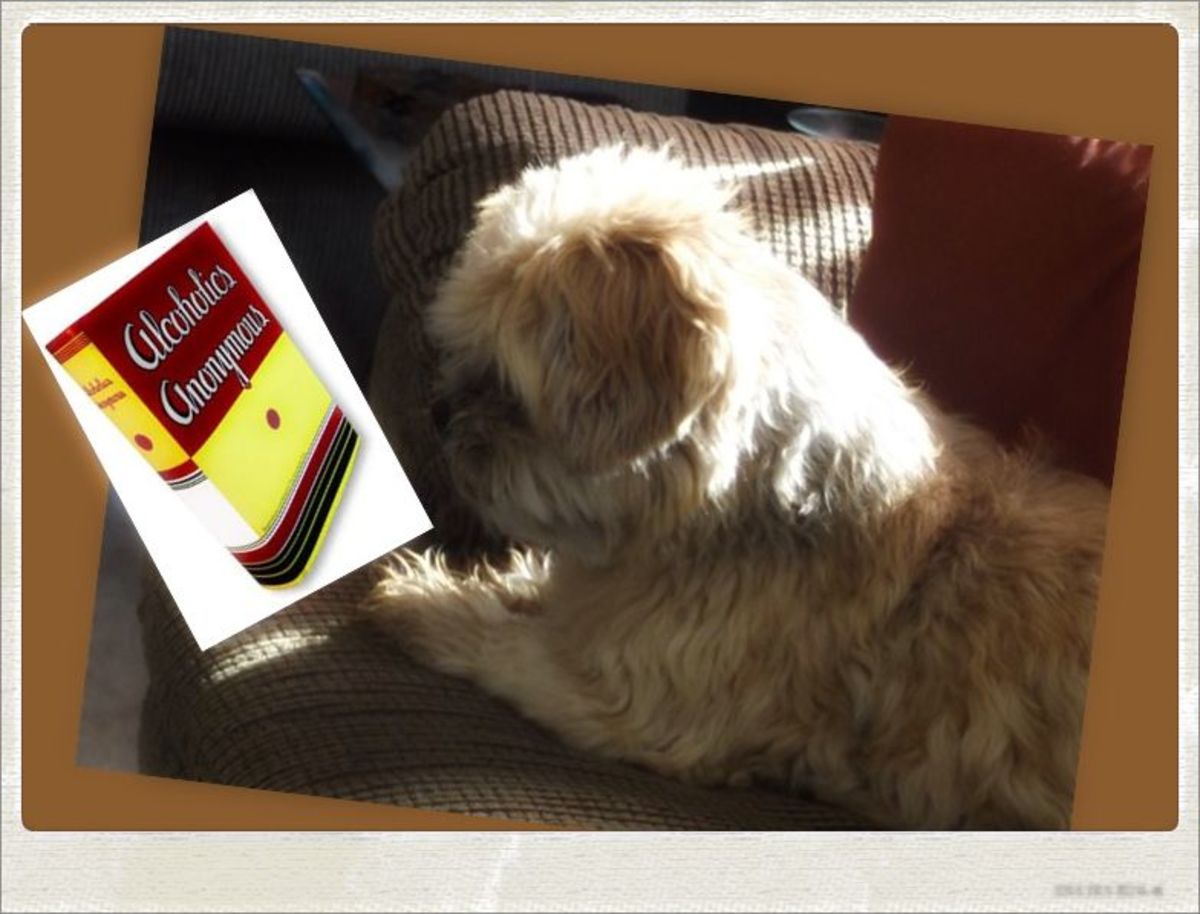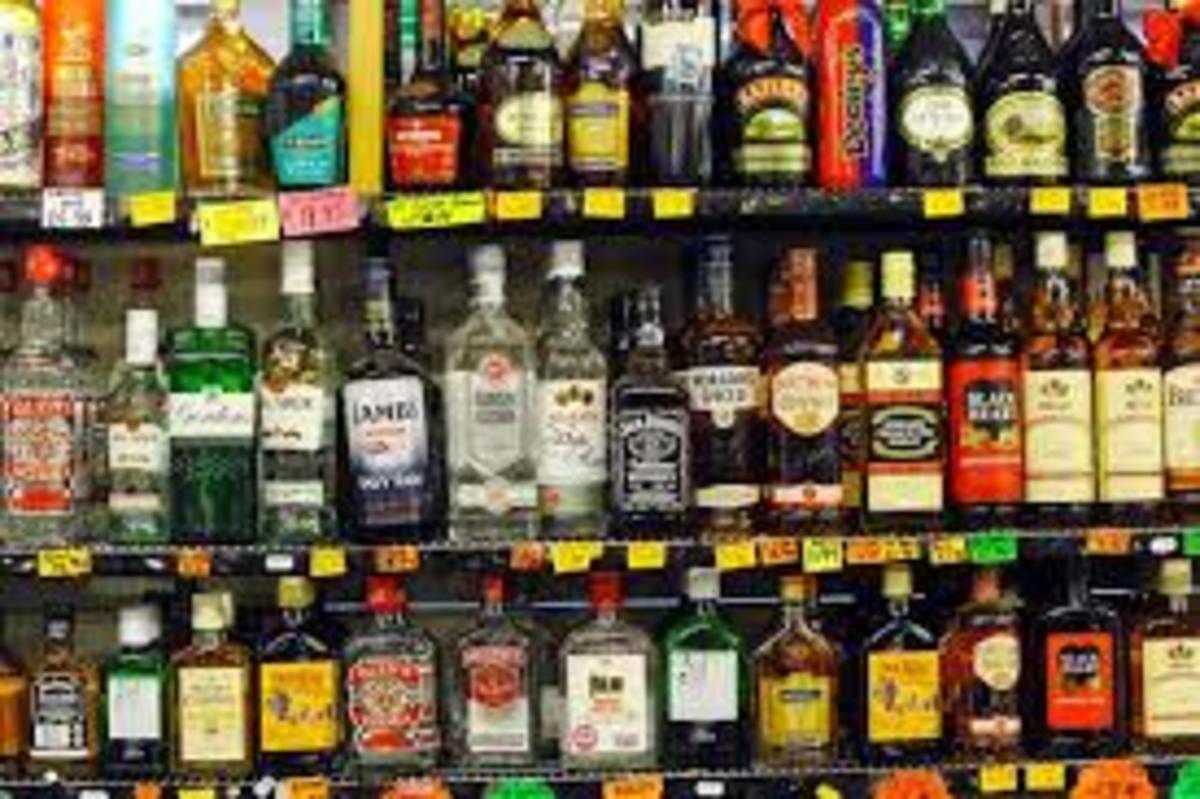- HubPages»
- Health»
- Mental Health»
- Addiction
How to tell if your child is drinking
HOW TO TELL IF YOUR CHILD IS DRINKING
Parents sometimes can't tell if their child is drinking or on drugs. Here are some of the signs you should be on the lookout for.
The Nose Knows
Your teenage son or daughter after a night out with the his/her friends. How do you know if he/she was drinking or smoking? Make a point of having a conversation -- not a yelled conversation through various rooms and closed doors, but a real, face-to-face conversation.
If your child has been drinking alcohol, smoking cigarettes, or marijuana, the smell will be on his/her breath. Any smoke he/she's been around will also soak into the clothing and hair. That's not necessarily a sign of personal guilt, but if it's pot smoke you smell, you have the right to be alarmed; even if he/she wasn't smoking it himself/herself, he/she was with peers who were. You should also be suspicious if your teen enters the house chomping on a fresh wad of spearmint gum or smelling of freshly applied lotion or perfume. He/she's probably trying to cover up a telltale odor.
Take a Closer Look
If your teenager is using or abusing an illegal substance, there's probably visual evidence to support it too. While you're chatting with him/her after he/she gets back from going out with his/her friends, take a close look. Pay attention to the eyes -- they tend to reveal any substance use.
If he/she's been smoking marijuana, his/her eyes will be red and heavy lidded with constricted pupils. If he/she's been drinking alcohol, his/her pupils will be dilated, and he/she may have difficulty focusing on you. In addition, alcohol has the effect of giving a red, flushed color to the face and cheeks.
There are also telltale signs of more serious drug use. Intravenous drug use leaves track marks, not only on the arms, but occasionally other places like the legs. Long sleeves in scorching hot summer weather may be an attempt to hide something. Snorting cocaine causes nosebleeds and eventually eats away at the septum inside the nose.
Finally, if there are strange burns on his/her lips or fingers, he/she may be smoking a substance through a hot glass or metal pipe. Sores or spots around the mouth along with paint stains on the body or clothing, a chemical odor or a runny nose can also indicate inhalant use, the practice of inhaling the fumes from household chemicals for a high. Ecstasy causes involuntary teeth clenching, increased affection and a loss of inhibitions. Also look for a fascination with sights and sounds, excessive water consumption and child-like toys.
Mood Changes
Okay, the scenario is the same as above; your son/daughter has just gotten back from a night out with his/her friends. How is he/she acting? Is heshe loud and obnoxious, or laughing hysterically at nothing? Is he/she unusually clumsy to the point where he/she is stumbling into furniture and walls, tripping over his/her own feet and knocking things over? Is he/she sullen, withdrawn, and unusually tired and slack-eyed for the hour of night? Does heshe look queasy and stumble into the bathroom?
These are all signs that he/she could have just been using some kind of illegal substance: alcohol, marijuana, or something else. You shouldn't read too much into a slight mood change after he/she gets home from being with his/her friends, but you should be on the lookout for unusual or extreme behavior. You should also pay attention to your teenager's behavior over time.
If your teenager has become silent, angry, withdrawn, and uncommunicative, and this has lasted for at least a few weeks, something else is going on. He may get angry if you try to reach out to him, and insist that you leave him alone, but you need to find out what's going on. Although a child can be moody for a number of reasons, you should certainly consider the possibility that he/she has formed a habit of substance use.
Car Accidents
For many older teens, their cars are their lives. If you suspect your teenager has been using illicit substances recently, see if the car has any clues to offer. Maybe his/her driving is noticeably more reckless when he or she is coming home after being with friends. Maybe there's a new dent in the front of the car and he/she claims he/she knows nothing about it.
If you're suspicious, examine the inside of the car too; most teens are pretty sloppy about cleaning the inside of their car. Does it smell like marijuana smoke or alcohol fumes? Are there any bottles, pipes, bongs, or other drug paraphernalia rolling around on the floor or hidden in the glove box? If you find anything, challenge him/her on it immediately: be forthright, and tell him/her exactly what you've discovered and why you're concerned.
Deceit or Secretiveness
Suddenly, you find your normally honest child lying to you all the time. His/her evening and weekend plans are starting to sound a little fishy; being vague about where he/she is going or his/her alibis don't work. He/she says that parents will be at the parties he/she's going to but can't give you a phone number, and comes home acting intoxicated. He/she gets in way past the curfew or estimated time, giving endless string of excuses. Even if you find evidence of substance use -- drunken or high behavior, a beer can or a marijuana rolling paper in her room - he/she's got someone or something else to place the blame on. When excuses fail, the response is that it's none of your business. Something is wrong, and you need to figure out what he/she's really up to.
Decreased Motivation
Your child's grades start falling and there's no obvious reason for it. You're given a weak explanation and assured that he/she can handle the situation but is not. He/she may be skipping school and spending less and less time on the homework. And he/she appears to be losing interest in other activities as well.
You're getting calls from teachers, coaches, principals, all saying the same thing: that your teenager has been skipping his classes, activities, or practices, and he/she's not putting in any effort when he/she's there. This could be a sign of a real substance abuse problem, where the desire to get drunk or high has taken top priority in his/her life.
Missing Alcohol, Cigarettes, Money or Valuables
For the teen who's looking to get drunk or buy drugs, their parents' house can be a gold mine of resources. Nearly all parents keep some sort of alcohol in the house, whether it's six-packs of beer, a rack of wine bottles, or a cabinet featuring an assortment of liquor. Teens will start stealing this alcohol, hoping their parents won't miss it, or filling liquor bottles back up with water to bring them to the original level. If one or both of their parents smokes cigarettes, they can always take some from the pack. If they need money to buy drugs, then they'll start going through their parents' wallets, stealing bills, or else will steal valuables like jewelry and heirlooms to pawn for money.
You should always keep track of the alcohol in the house. If you notice anything missing or your liquor tastes suspiciously watery, you should lock it up so your teen can't get to it. If your child is stealing cigarettes and you don't approve of him/her smoking, don't leave packs out where he/she can get to them. And in all these instances, particularly when money or valuables are being stolen, you need to confront him/her immediately. He/she must be aware that you know what is going on and you won't tolerate it.
Cash Flow Problems
You know something is going on when your money starts disappearing. There are other money-related ways to detect this sort of problem too. Obviously, drugs and alcohol cost money, and even seemingly inexpensive substances add up over time. Your child may work a part-time job after school, but he/she's probably not earning much more than minimum wage.
If you find that he/she is increasingly concerned about getting more money but volunteers no explanation as to why, you should wonder what he/she's spending it on, especially if there's no new items. It may be that the money is being used to support his/her substance use. On the other hand, if he/she suddenly seems to have a whole lot more money, way beyond what he/she reasonably should in his/her circumstances, consider that he/she could be dealing drugs. Under these circumstances, a room search may be justified.
Change in Friends
You notice that your teenager is hanging out with a different peer group. Sure, it's normal for teenagers to make new friends, but these friends worry you for some reason. Perhaps these new friends are older and seem to be independent, with less parental supervision and less interest in school.
They might be making poor choices and getting involved in questionable activities. Maybe you've even suspected they were high or drunk when you were talking to them. Whatever the case, your teen will probably defend his/her new choice in friends, they are more fun and understanding. But if you've got a feeling they're up to no good, keep your eyes and ears open, and go with your instincts.
If you see all these signs in your child, then you can be sure that definitely, your child is using alcohol or drugs. Confront him/her, but not in a quarrelsome way; talk to him/her and if possible, try to get help.
You might want to read some of the comments. They have some really helpful tips and some remarks are really insightful, from different walks of life, I would say.


